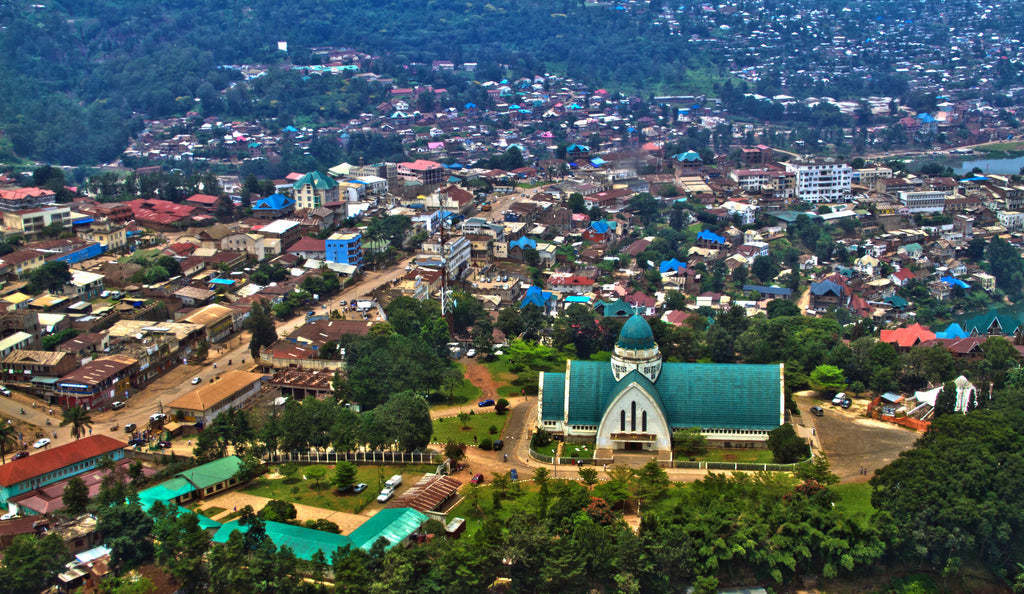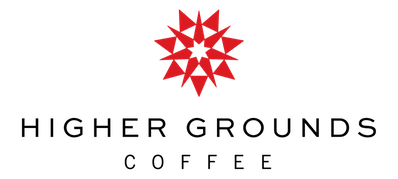
The Democratic Republic of Congo (DRC) is the second-largest country in Africa. It is home to some 87 million people. Despite the fact that the DRC is rich in natural resources, years of instability and conflict have hampered its economic development.
To understand more about this instability and how it has led to widespread inequality in the country, we spoke with Herman Chirihambali Lwango. Herman is the Program Director at On the Ground, our' partner non-profit that works towards sustainable development in coffee growing regions. Read on to find out what he said.

On the Ground works on different projects for gender equity in South Kivu
Political Instability and Conflict in the DRC
Today, the DRC is still recovering from the effects of two major civil wars in the 1990s. Across the country, other conflicts are still ongoing. In Kivu (one of the DRC’s major coffee-producing regions) conflict in some capacity has been ongoing for the past 16 years. According to BBC News, civil wars and resultant conflicts in the Congo have resulted in the deaths of as many as six million people, through fighting, disease, and malnutrition.
Political instability and conflict in the DRC have raged ever since the Congo successfully secured independence from Belgium in 1960. While the country’s wealth of precious minerals and natural resources (including gold, diamonds, and uranium) should have been a force for economic growth and progress, it has instead been fought over for decades.
Herman explains that armed conflict is still a problem in the DRC. “In the country today, we have 48 armed rebel groups that are still active,” he says. "Armed forces from [neighboring countries] are also present in the DRC to support the rebels and loot [the country’s] rich natural resources.
“There is stability in some towns, but even in Goma [the capital city of the North Kivu province], there is still insecurity.”
Ongoing conflict has meant that many civilians are routinely forced to relocate and leave their homes. The UN Refugee Agency reported that some 300,000 people, mainly women and children, were displaced (and often vulnerable to human rights violations as a result) thanks to attacks in June 2019 alone.
Herman also explains that the political events of the past 20 years have only led to further instability. In 2006, Joseph Kabila was elected president. He secured another term in 2011, under controversial circumstances. In 2016, when his second term should have finished, Kabila refused to leave office.
After two delayed elections, opposition candidate Felix Tshisekedi was declared president in 2018. However, the legitimacy of this election has come under scrutiny, and many believe it is linked to an unofficial agreement with the Kabila regime.

The fertile lands of South Kivu
Covid-19, Ebola, and Other Diseases
As well as political instability and violence, the DRC is also grappling with disease. Alongside Covid-19, there has been an ongoing ebola epidemic in the DRC since August 2018.
The American Centers for Disease Control and Prevention states that they consider this outbreak to be the second-worst ebola epidemic in global history.
The DRC also has one of the highest child mortality rates in the world. According to Unicef, malaria and diarrheal diseases cause the most deaths among children in the DRC. Combined with high malnutrition levels and poor infant feeding practices, this continues to be a devastating issue for young children in the country.

A road in the DRC
Lack of Infrastructure
In the DRC, poor infrastructure makes internal travel and the transport of goods incredibly difficult. Herman tells us that this is a significant issue for many people – especially coffee producers. Without appropriate access to infrastructure, farmers are often unable to sell their crop or access other basic goods.
“Transport prices are very high, and there are many accidents on the [poorly-maintained] roads. The vehicles are not durable, and the road conditions are not suitable for many vehicles to go anywhere,” Herman says.
He adds that many of the communities in the DRC are remote. Masisi, for example, is a small town in the Virunga Mountains, with a population of more than 6,500 people. Even though it is only located 60 kilometers from Goma (the capital of the province), the lack of properly maintained roads mean that it can take up to a day to travel between the two.

Children in Herman's village, smiling for the picture
Inequality in the DRC
Herman explains that the challenges, conflict, and general instability reinforce inequality across the country, especially for women and children. “Women do not have the right to speak out in some homes,” Herman explains. “And for schools and medical care, boys have more priority than girls.
“Conflicts are [predominantly] maintained by men, and it is women and children who suffer 90% of the consequences.”
UN Women (the United Nations entity dedicated to gender equality and the empowerment of women) reports that 52% of women in the DRC are survivors of domestic violence, and that 39% report having injuries or being threatened. They also state that gender, economic status, and location all have an impact on access to education.
Furthermore, Unesco’s 2013 report on Inequalities in Education indicates that young women in low income brackets suffer the most disadvantage. The report showed that in the conflict-affected former province of Katanga (now split into four new provinces as of 2015), 44% of girls in low income families did not attend primary school whatsoever.
Similarly, there are high levels of income inequality across the country. “The country’s wealth and economy are in the hands of a few corrupt individuals in power,” Herman says. Statistics indicate that some 72% of the population lives in extreme absolute poverty, with less than US $1.90 a day.

Congolese women in different workshops conducted via On the Ground
Taking Action
In response to the high percentage of inequality in the country, our partner non-profit organization, On the Ground, is taking action.
HG Director of Coffee Jennifer Yeatts relays that On the Ground is organizing gender and literacy workshops in five communities within the Muungano coffee cooperative in Kivu, and this work is facilitated by Herman. Further, she shares that “through Cooperative Coffees, we've allocated impact funds to Covid-19 relief in order to provide handwashing facilities at several coffee wet mills.”
Beyond program work, “Higher Grounds represented the first major coffee purchase from the up-and-coming Kawa Kanzururu co-operative in North Kivu, near Virunga National Park, and we continue to purchase coffee from those farmers each year,” she says.
On the Ground and Higher Grounds are collaborating with the government and the private sector to build legitimacy and infrastructure for the DRC as a coffee origin. “The projects we are engaged in are all focused on the very specific goal of meeting farmers' needs,” Jennifer explains.
“But violence and the lack of access to basic resources are a very real disruption in the daily lives of people living in the DRC, and we are working at a high level to address those challenges.”

Coffee drying beds on the shores of Lake Kivu
While transforming the coffee industry might bring the country important economic development, there is a long road ahead to bring peace and prosperity to the country. The good news is that the potential for coffee in the DRC is huge. “It keeps getting better and better,” says Jennifer. And even though driving long-term, sustainable change takes time, it always starts with small steps. As Jennifer says, “simply buying Congolese coffee is a good start.”
Header image: the city of Bukavu, eastern Congo
Photo credits: Saveur du Kivu, Higher Grounds, On the Ground, Herman Lwango
